The main photo is my trial beds, with the no dig bed closest to camera. They both have exactly the same plantings and the same compost applied, every December.
So far this year the harvests are just over 10 kg from the bed I dig every December, and 15 kg from the no dig bed. These differences will change through the season, it's always so interesting to learn from.
We just harvested the first potatoes and one plant from each bed gave 1.05kg dig, compared to 0.94kg no dig.
It's nice to be coming into potato-harvest season.
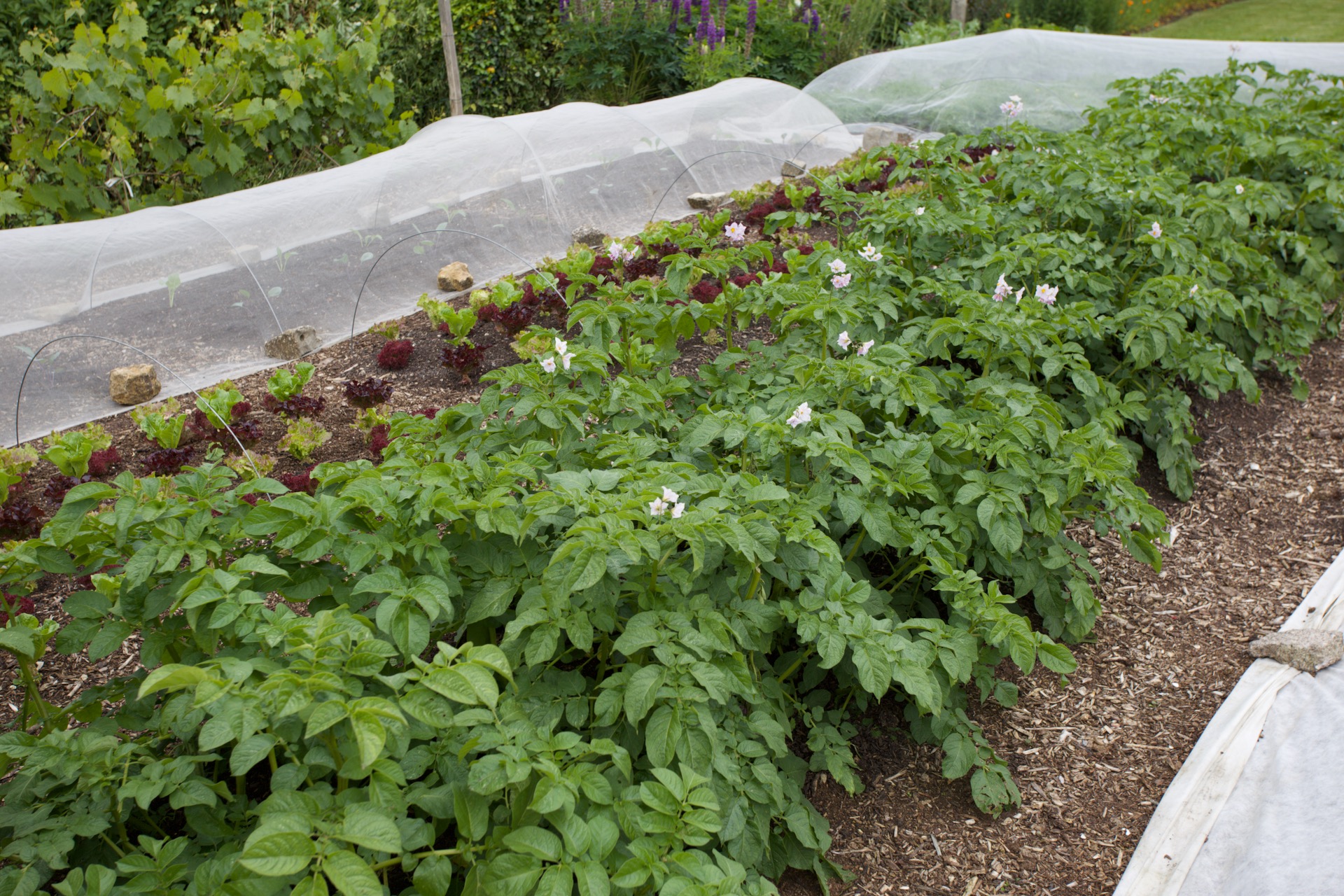
Another of my trials in the photo above is about no rotation. Results over the last decade suggest that rotation is not vital when your soil is super healthy. No dig facilitates that.
In the photo above you can see how good those plants are looking, and also the lettuce behind them are in the eighth year of growing in exactly the same place every spring.
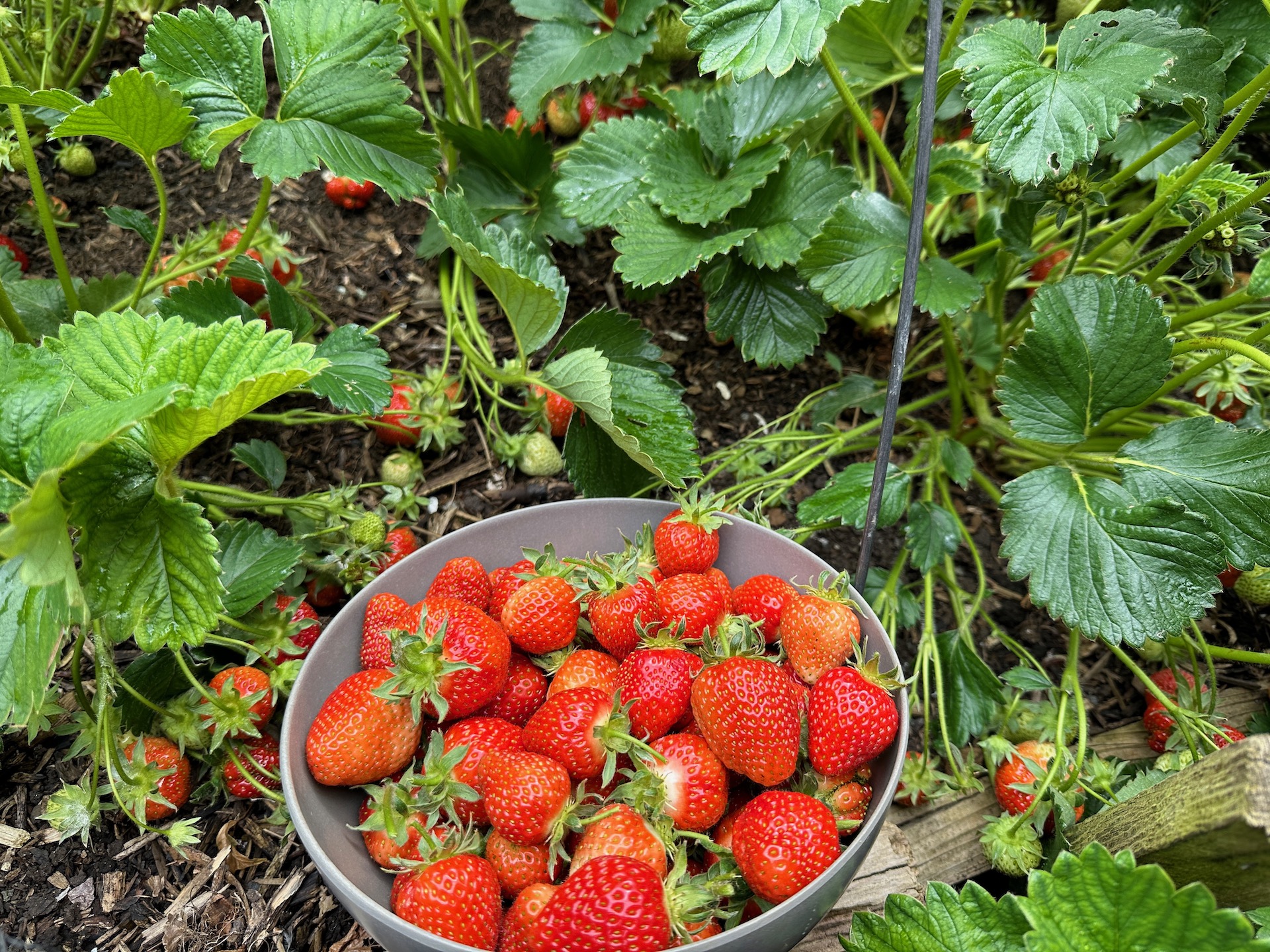
These strawberries have no straw underneath, are super clean and with almost no slug damage. I use no slug pellets, not even the so-called organic ones.
The slugfest conditions of spring 2024, have highlighted the value of compost mulches on beds, rather than undecomposed materials such as hay and straw. My recent Small Garden video has more on this.
Compost is a mulch, it protects the soil and feeds soil life.
I receive encouraging feedback from dry, hot places like Utah and Arizona where gardeners using compost mulches are enjoying great results. The surface dries and that protects the soil below. Then when it rains, the surface is moist again.
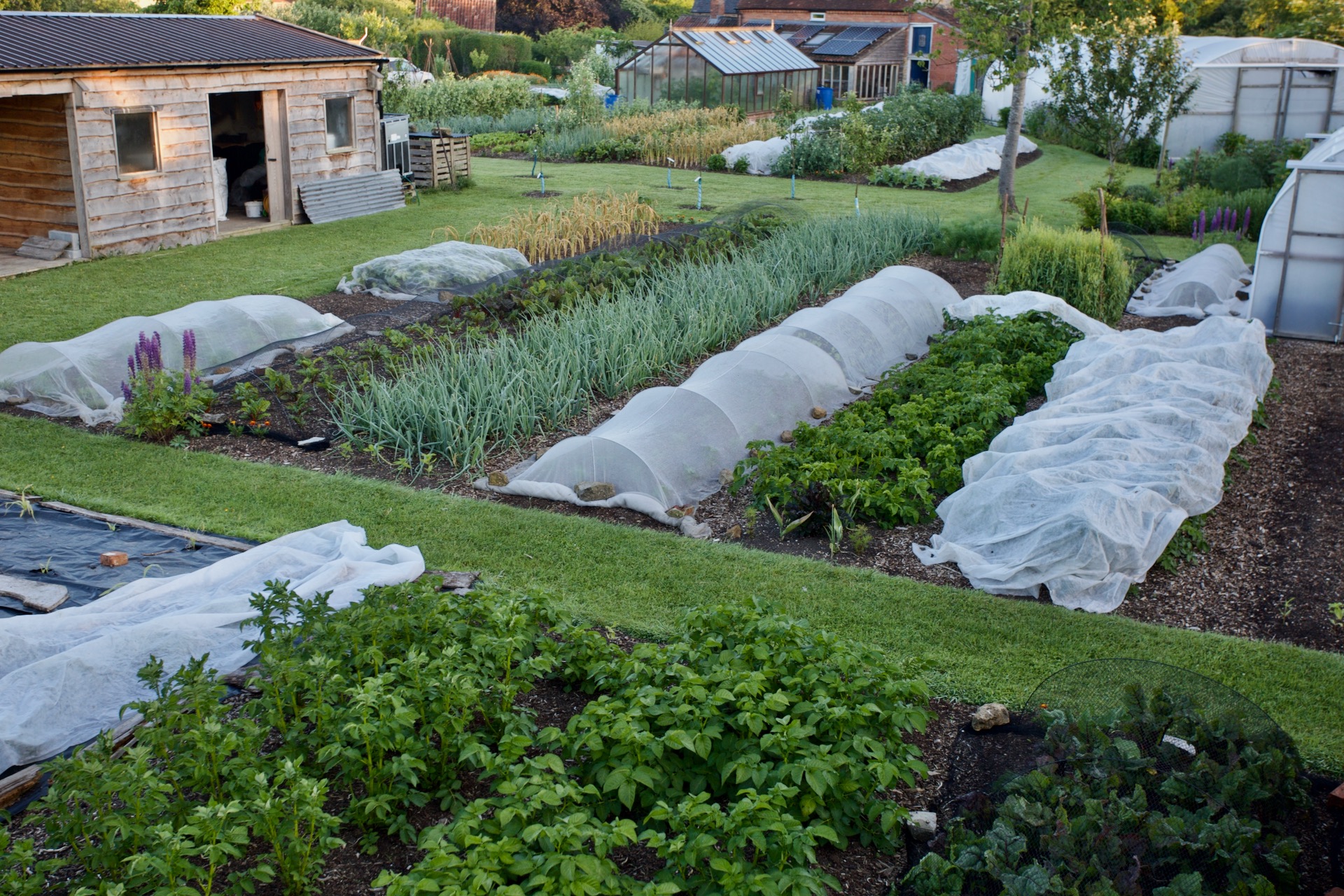
So cold
We're just coming out of two weeks of cold north winds which have set back many plants, but fortunately we just avoided a ground frost. Squash, cucumber and courgettes / zucchini are standing still or hardly growing. I even have fleece on some of my squash and they are doing better for that.
I hope now to be able to remove it as the temperatures rise above the 15 to 17°C we've been having as daytime maxima, that is low 60s Fahrenheit..Night temperatures have often been 45°C, around 40°F. That is unusually cold for the middle of June!
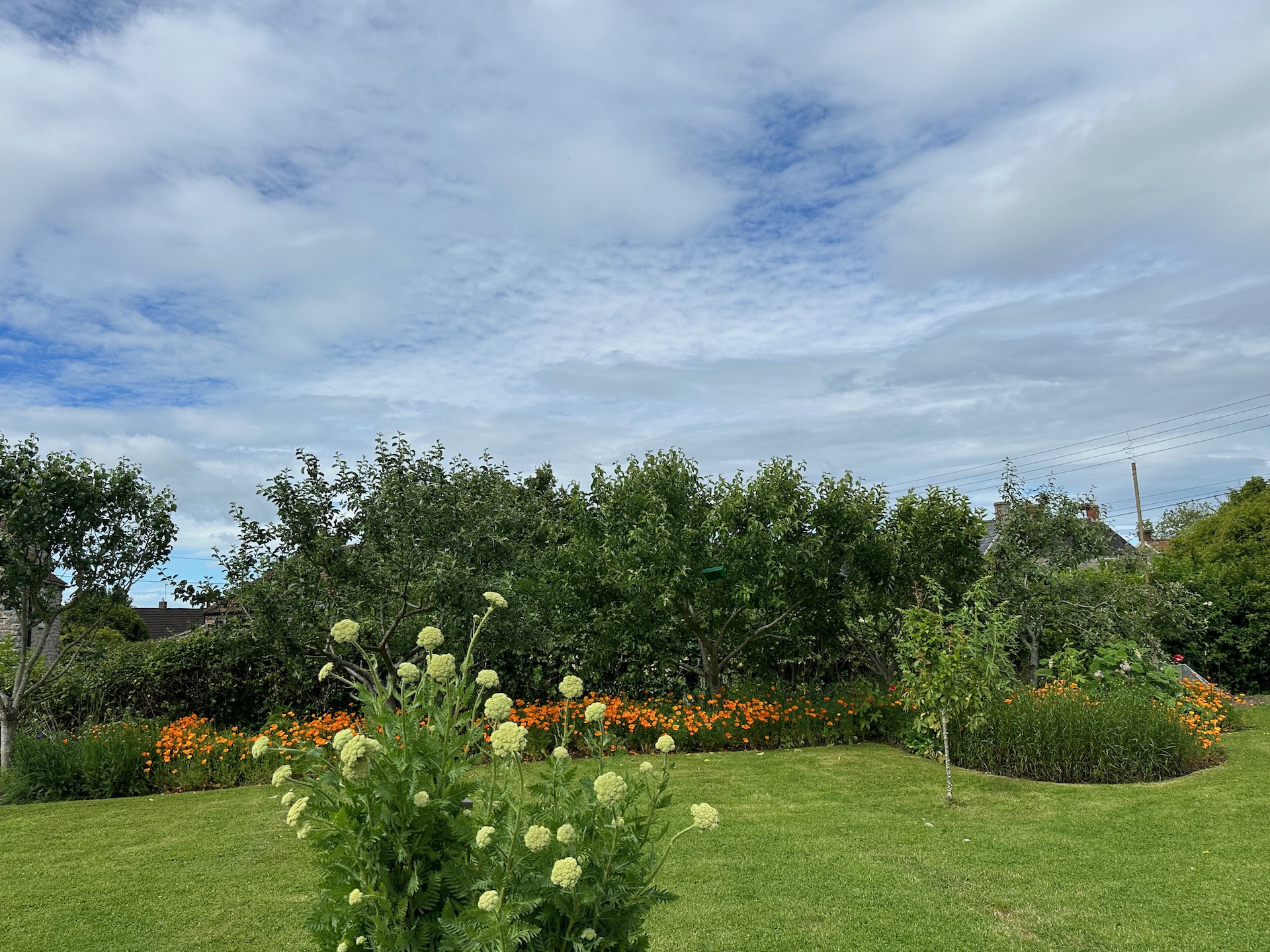
I'm concerned by what I see now, all too frequently. Above all, I notice how we rarely see true blue, and the British Met Office now tell us why, this video.
There's a veil of white misty material almost always. Looking at sunlight now, it's more white than golden, like LED. Not so warm, not so good for plant growth and not so good for vitamin D production.
Keep sowing
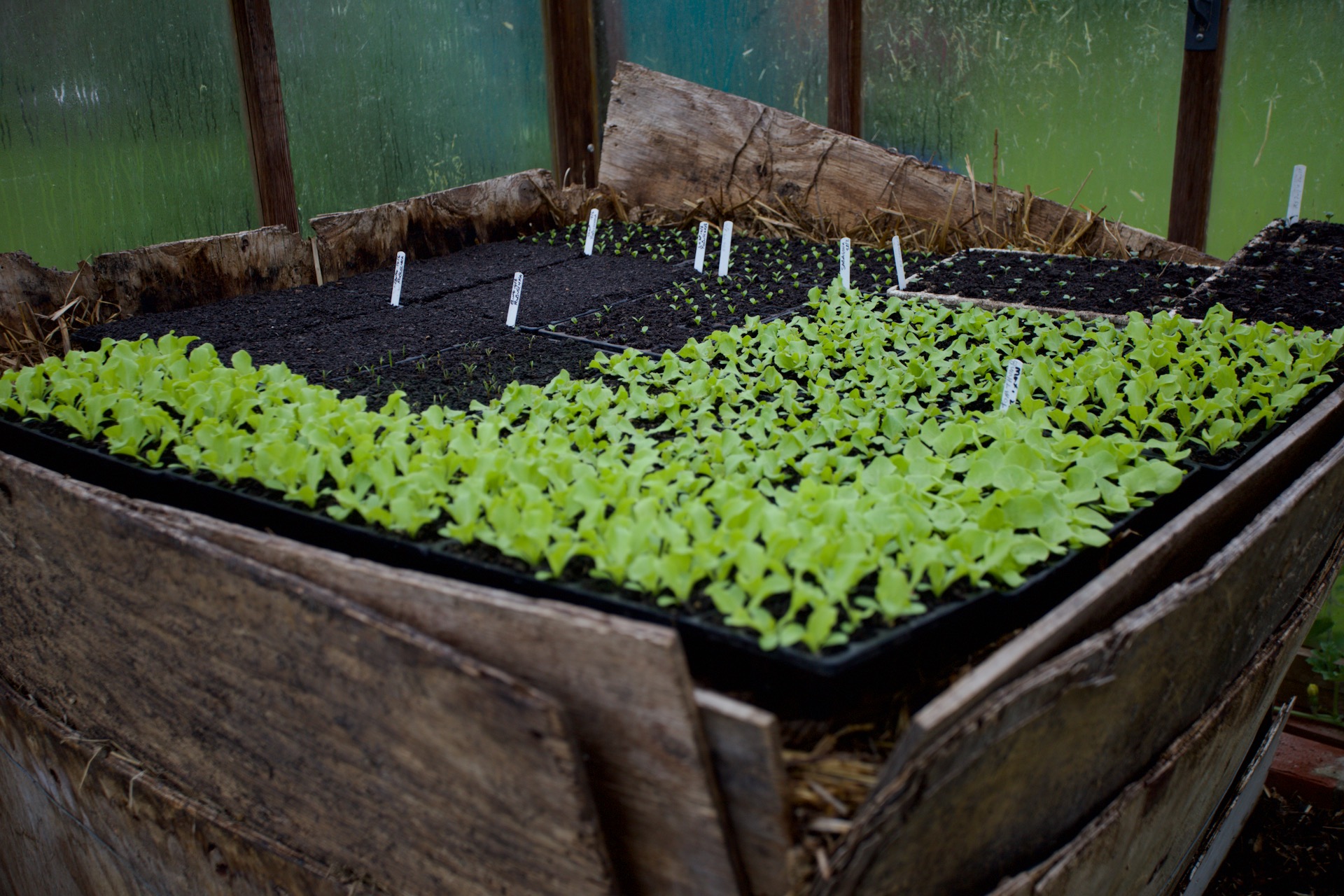
Sow any of salad onions, lettuce, savoy cabbage, broccoli to overwinter, autumn cauliflower, dwarf French beans, beetroot, chard, swede or rutabaga.
Plus it's a top time for sowing carrots to mature in autumn, for use in winter months.The carrots go direct into any empty beds, while everything else starts as transplants. Although French beans grow well from direct sowing.
I do not have a plan for where they all go, but ideas in my mind. I wait for space to become available, as harvests finish of peas, broad, beans, salad onions, lettuce, spinach, beetroot, and many other spring plantings.
Sometimes you can interplant new vegetables between existing ones, if the latter finish within a month. Kale between onions for example.
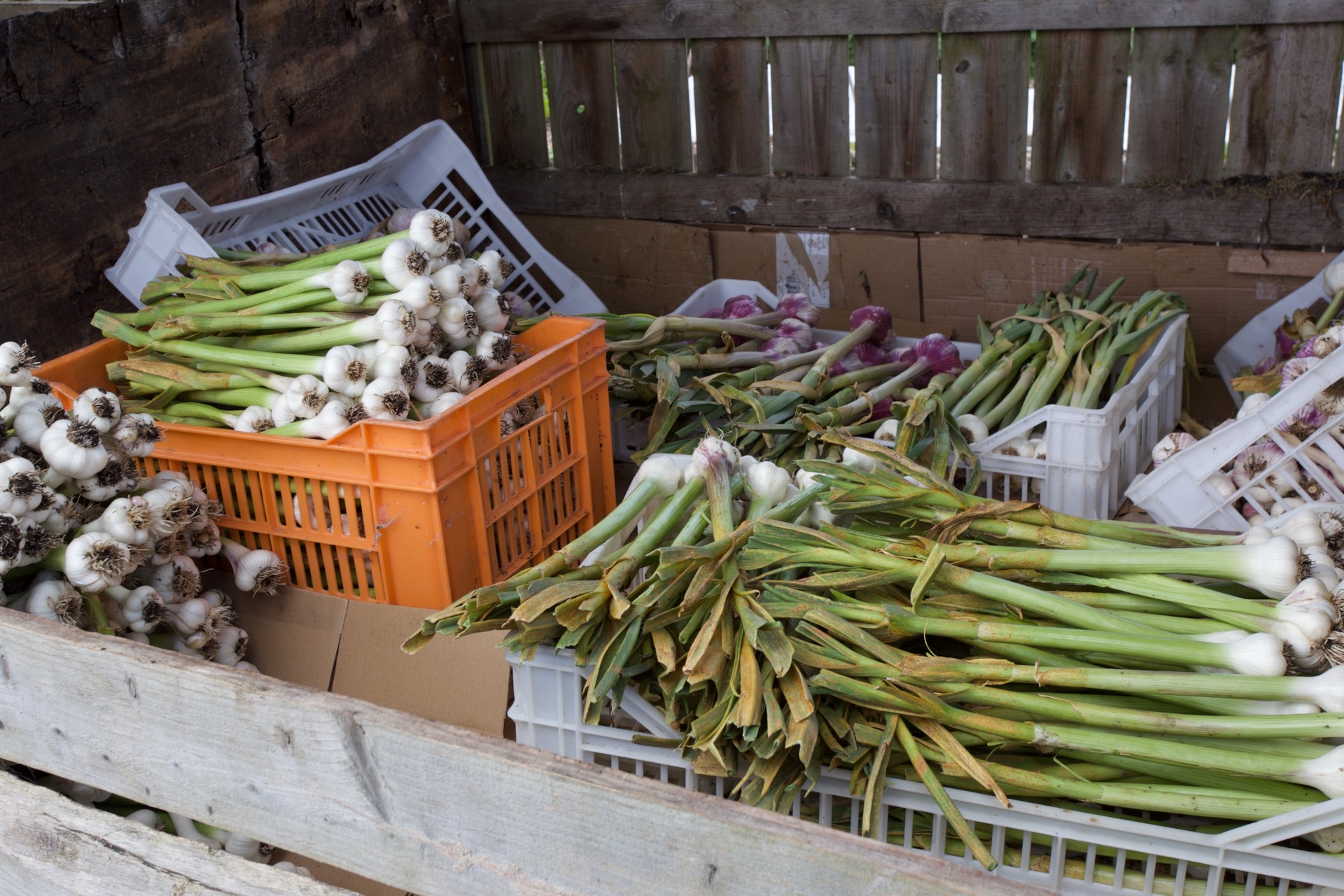
Succession planting
Cabbages sown 8th May and transplanted 11th June after clearing broad beans, which I had sown direct on 27th October. Mesh is against rabbits and insects.
The broad beans from that area gave 41.3 kg / 90lb total harvest, including pods.
See my June Jobs video for more seasonal details.
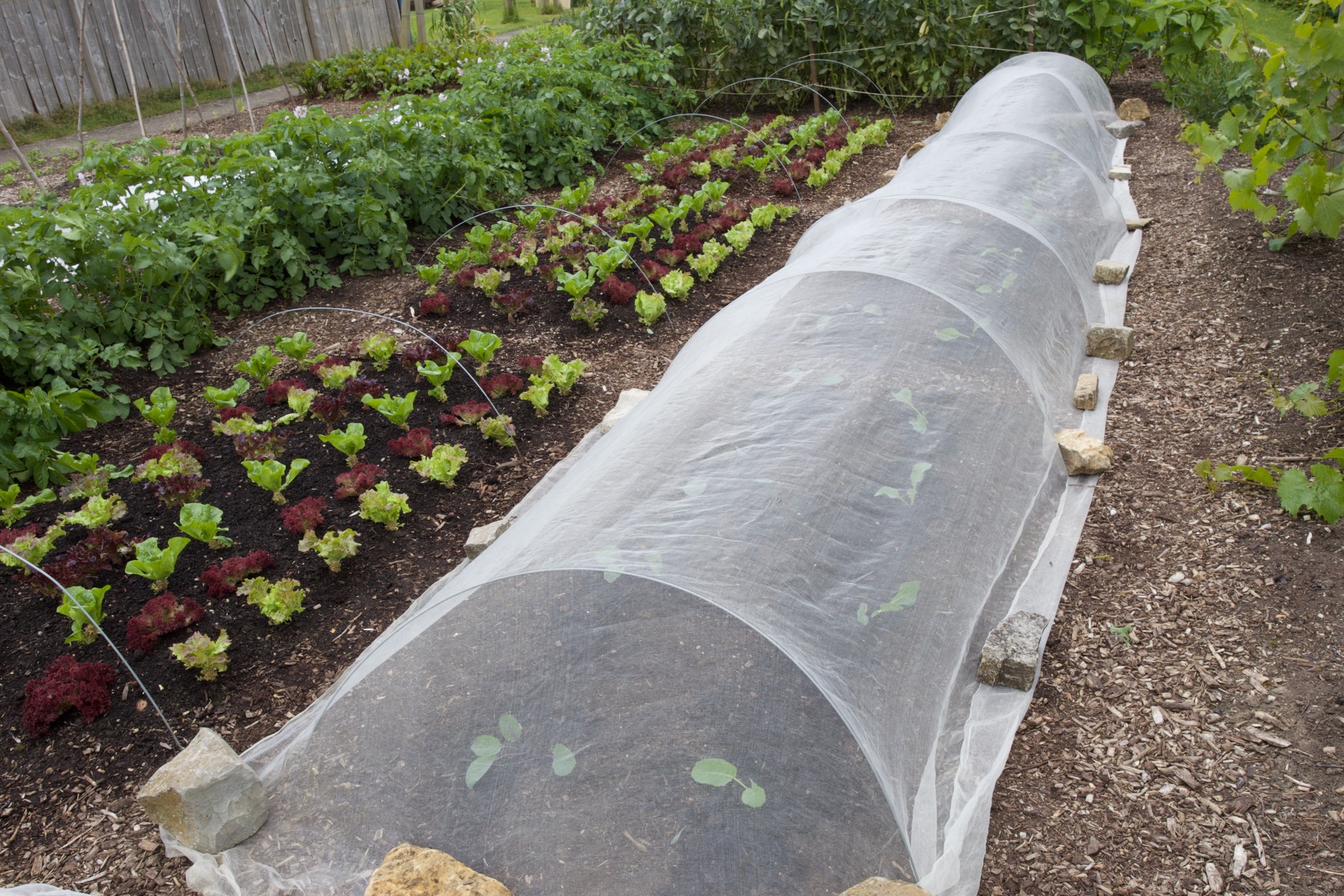
Enjoying the weather
As long as slugs did not destroy plantings, some vegetables have benefited from the damp and dark conditions. These include lettuce, strawberries, peas, broad beans, turnips, and salad onions.
Now we're coming into summer plantings, and we need warmth for them, and sunshine.
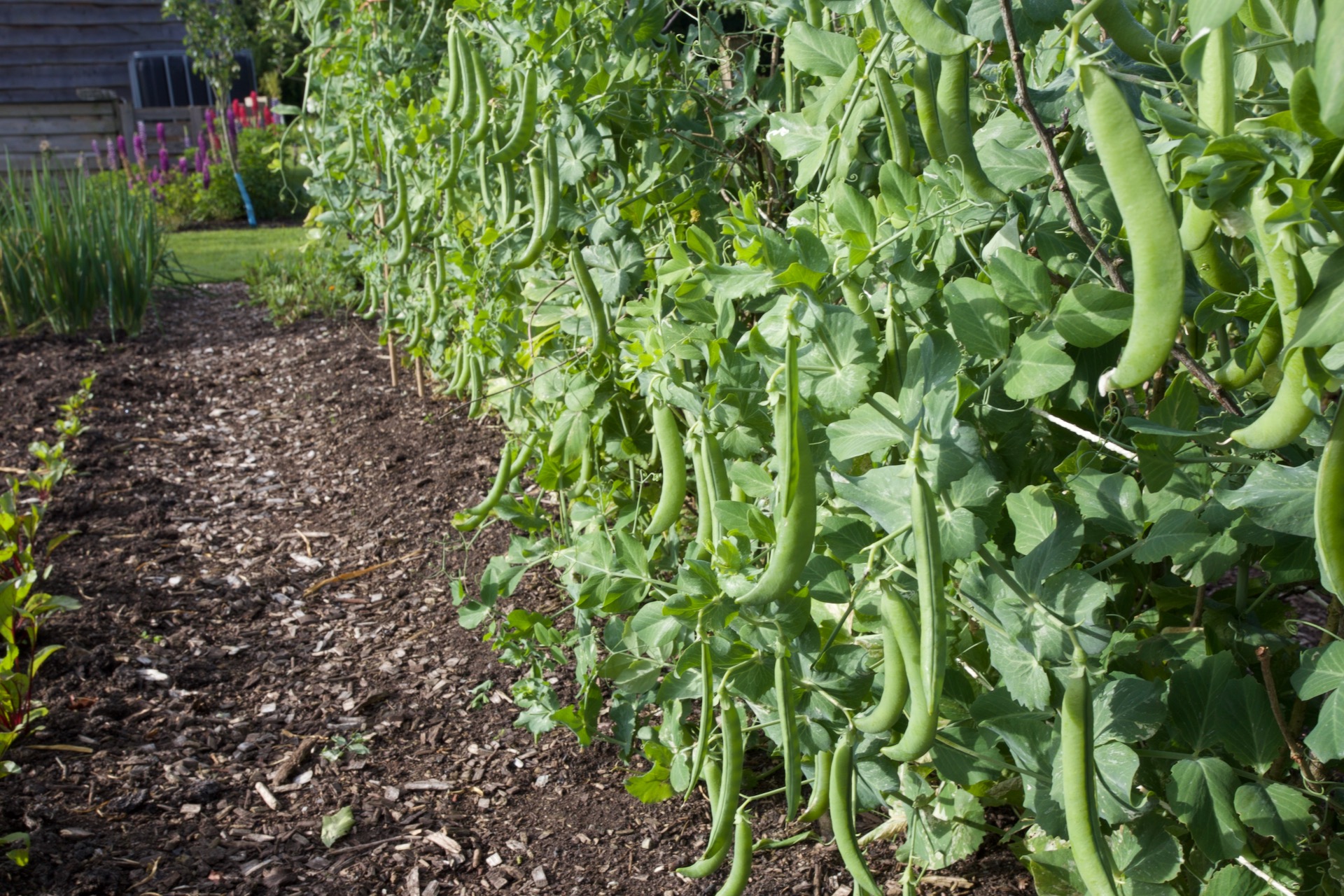
Book recording

We had just finished recording my new book Compost, which will be released in both audio and print on 5th September.
I find it intense to do this recording in a little box studio. It takes a while to get into the swing of it and this book took three sessions. Fortunately, the studio is in Barton St David between here and Glastonbury, so that saves precious time getting there and back.They also recorded my No Dig book.
A new problem

We do not need this - a new pest!
My short video explains how devastating it can be, and using covers is the only way I know to reduce damage. Even so the flies can wriggle under the sides so make them as secure as possible.They eat leeks and garlic too.









































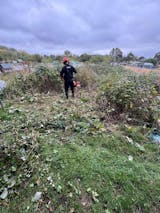
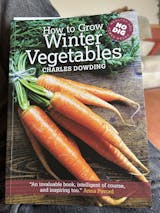
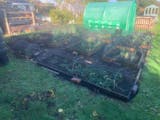
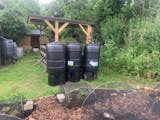
0 comments